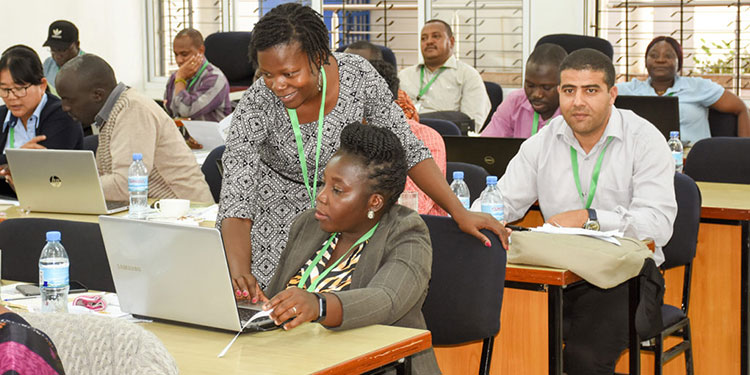
They were from Myanmar, Tanzania, India, Tunisia, Burkina Faso, Malawi, Uganda, Ghana, Mali, Nigeria, Sudan, Zimbabwe, Ethiopia, and Egypt.
The breeders, working on grain legumes and dryland cereals on the continent, will be scaling up seed breeding for industrial purposes to turn around the situation.
They met for two weeks at the Nelson Mandela African Institution of Science and Technology (NM-AIST) in Arusha for a course on breeding approaches for enhancing genetic gain when Africa is emphasizing the application of science and technology to bring about agricultural transformation.
Director of Tanzania Agricultural Research Institute (TARI) Selian, Dr. Joseph Ndunguru, noted that there was a need for training more scientists and breeders especially those in Africa on how to access and utilize genomic tools for crop improvement.
There is a need to train our scientists and breeders especially those in Africa on how to access and utilize genomic tools for crop improvement,” he said.
He urged the breeders to ensure quality that would build the trust of farmers in the authenticity of seeds. He explained that workable seed systems were crucial for agricultural development and food security.
In sub-Saharan Africa, it can take several years to register new seed varieties in a particular country.
This is often true even when the varieties are already available in neighboring countries or member states of common trading areas such as East African Community or Economic Community of West African states.
Slow registration contributes to restricting smallholder farmers’ access to improved seeds, hence limiting their ability to increase crop yield.
International Institute of Tropical Agriculture (IITA)’s, Godfrey Chigeza, who is an expert in breeding soybeans, noted that in Africa few breeders had ventured into the seed business.
He urged breeders to wake up and create networks and partnerships to broaden their horizons. “We have become like people who cook and give food to other people.
It is high time we moved out of the kitchen to be seen, speak for ourselves, engage policymakers and establish businesses that will work for our farmers,” he noted.
